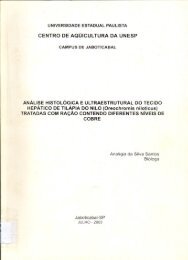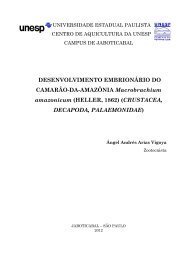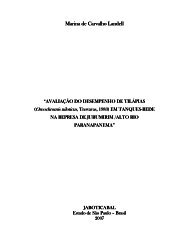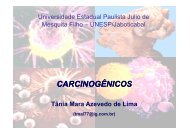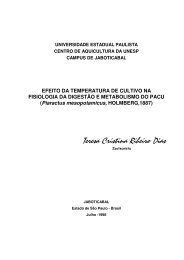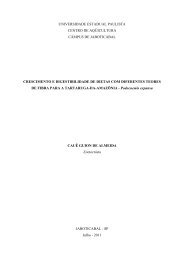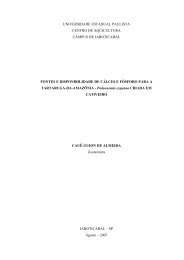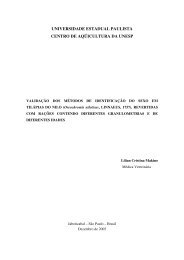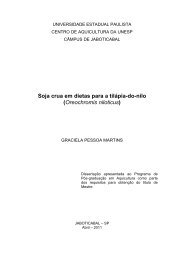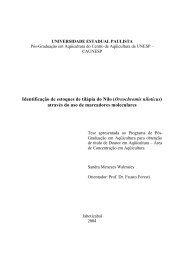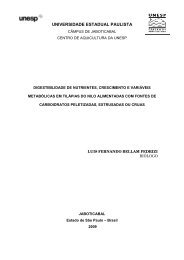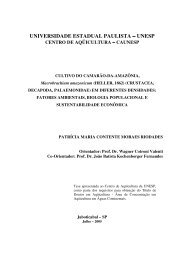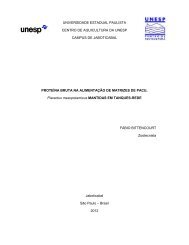Tese Michele Fagundes.pdf - Caunesp
Tese Michele Fagundes.pdf - Caunesp
Tese Michele Fagundes.pdf - Caunesp
Create successful ePaper yourself
Turn your PDF publications into a flip-book with our unique Google optimized e-Paper software.
Abstract<br />
Live fish transport is among the most commum procedures in fish farming. It is<br />
a stressful procedure, responsible for several physiological and metabolic responses<br />
caused by a series of stimulus that can lead to significant losses. The aim of this work<br />
was evaluate stress responses of juvenil of pintado (Pseudoplatystoma corruscans)<br />
transported for 12 h in a closed system. A total of 60 fish (66.6 ± 18.3 g; 24.2 ± 2.2 cm)<br />
were used. Samplings were performed at arrival (0 h), 24, 48, 72 and 96 h after<br />
transport. Blood cortisol levels did not show significant differences but there was a clear<br />
profile of increase after transport and gradual reduction after the procedure, reaching<br />
levels below the control levels at 48, 72 and 96 h. Glucose was elevated after transport<br />
returning to control levels within 72 h. Muscle lipid increased after transport and<br />
returned to control levels within 72h. Serum triglicerid did not alter folowing a clear<br />
profile and cholesterol and protein increased after transport. Regarding ionic indicators,<br />
chloride levels decreased after transport, as well as hematocrit, number of erythrocytes<br />
and hemoglobin.<br />
Key-words: Transport, pintado, cortisol, glucose, protein, lipids.<br />
58



